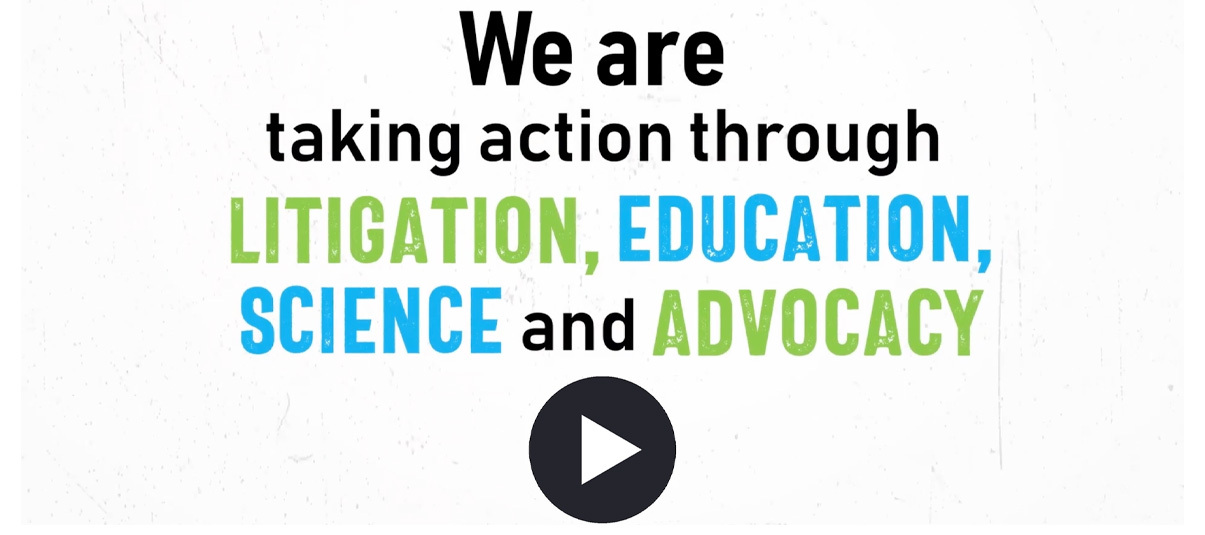Are Courts Failing to Protect Medical Freedom for Children and Youth?
This month, Children’s Health Defense (CHD) filed an appeal, along with 19 college students, at the Supreme Court of the United States (SCOTUS) to review a case alleging violation of the right to informed consent and the right to refuse unwanted medical treatment in mandating or requiring students to take the COVID-19 injection.
Earlier this year, in February 2024, the 3rd U.S. Circuit Court of Appeals ruled in favor of Rutgers University by concluding it had a “rational basis” for the vaccine mandate as part of its efforts to curb the COVID-19 pandemic on campus. In the SCOTUS appeal, CHD argues that the ruling was a flawed application of the “rational basis” standard of review. Instead of making the University’s policy the focus, the students’ fundamental right to informed consent should have been the focus. It remains to be seen whether the SCOTUS will hear the students’ challenge to university and college mandates or not.
[1] In light of the recent 9th U.S. Circuit Court of Appeal in California reinstating a challenge against the Los Angles School Board for imposing mandates on the basis that a legal determination of whether the COVID 19 injection is a “vaccine” or a “therapeutic” has not been made,[2] the prospects are high and promising.
The question raised by the Rutger’s case in the USA is one that also plagues Canadian families. That question is: Do students have a fundamental right to refuse medical treatment? The answer to that question, according to the Supreme Court of Canada, is unequivocally “yes”!
In 1988 in the Morgentaler decision,[3] the Supreme Court of Canada (SCC), ruled that a person’s right to make decisions about their own body “has historically been viewed as trumping all other interests, including what physicians may think is in the patient’s best interests.”[4]
In AC v Manitoba (Director of Child and Family Services) and B(R) v Children’s Aid Society of Metropolitan Toronto, the Supreme Court held that non-consensual medical treatment violates a person’s section 7 Charter right to security of the person[5]. The Ontario Court of Appeal in 1991 specified that the right to refuse medical treatment is entrenched in our Constitution under section 7 of the Charter:
“Common law right to bodily integrity and personal autonomy is so entrenched in the traditions of our law as to be ranked as fundamental and deserving of the highest order of protection. This right forms an essential part of an individual’s security of the person and must be included in liberty interests protected under s. 7”[6]
Yet in the province of Ontario students were forced to be jabbed with an experimental shot, or lose their tuition fees and forfeit years of study. In answering the same question when it came to COVID19 jabs the Courts deviated from the above cases and said: No!
In September 2022 when Ontario students challenged the mandates the Courts in Canada miserably failed them. In Costa et al v Seneca College [7] the Court dismissed all the Charter arguments on the right to refuse medical treatment.[8] The Court did so on the assumption that COVID19 injections were necessary (ie. mandatory) to prevent infection and transmission on the basis of Public Health. It also ruled that the COVID jabs were safe by taking “judicial notice” of Health Canada and Public Health pronouncements. In contrast to the latest evidence of COVID 19 injection and boosters being associated with risks of myocarditis for adolescents and youth. [9]
Ontario Colleges and Universities justified mandatory vaccination policies by relying on Public Health. However, according to Dr. Moore, Chief Medical Officer of Public Health, Ontario did not institute a mandatory vaccination policy. With respect to educational institutions establishing COVID19 “vaccine policies” specifically, on March 7, 2023, Dr. Moore stated:
“From the government’s vantage point, when we asked, we asked for a vaccine policy. That policy, if, should have been to the point that if you don’t get vaccinated, they offer, whatever the policy was, they offer an alternate to the individual. So, if you couldn’t, if the school didn’t want you to come to the classroom at a university or college, then you would be allowed virtual. So, so, our vantage point, we, we wanted it to, to, to be a policy framework rather than a mandate. And that we did not have a mandate in Ontario, from this government’s vantage point.” [10]
Schools including colleges and universities should not be permitted to just adopt the mantra of a government agency (Public Health) as the justification for “mandates” in forcing and coercing medical treatment on students because Public Health could be wrong. Or, as was the case in Ontario, the University could be misinterpreting or misapplying the government policy. Or, and most importantly, it is premature to force students to comply with a campus policy before the government has shown a compelling state interest, purpose or objective and also shown that the government policy mandating “vaccines” was the least intrusive to achieve its purpose of “curbing the pandemic on campus”.
Canadian students and families seeking oversight of public institutions, including education and public health, for breach of their basic human right of bodily integrity were disappointed by the Canadian judiciary. They will be watching the US Courts closely as they realize their own Courts failed them miserably.
Photo credit: Unsplash
[1] https://childrenshealthdefense.org/defender/chd-asks-supreme-court-hear-rutgers-covid-vaccine-mandate-case/?utm_id=20240516
[2] https://cdn.ca9.uscourts.gov/datastore/opinions/2024/06/07/22-55908.pdf
[3] R. v. Morgentaler, 1988 CanLII 90 (SCC), [1988] 1 SCR 30, <https://canlii.ca/t/1ftjt>
[4] Cuthbertson v Rasouli, 2013 SCC 53 at para 19
[5] AC v Manitoba (Director of Child and Family Services), 2009 SCC 30, [2009] 2 SCR 181 [AC]; B(R) v Children’s Aid Society of Metropolitan Toronto, 1995 CanLII 115 (SCC), [1995] 1 SCR 315 [B(R)
[6] Fleming v Reid 1991
[7] Costa, Love, Badowich and Mandekic v. Seneca College of Applied Arts and Technology, 2022 ONSC 5111 (CanLII), <https://canlii.ca/t/jrwms>
[8] The only issue appealed to the Ontario Court of Appeal in Costa v. Seneca College was the amount of costs.
[9] https://academic.oup.com/eurheartj/article/45/15/1327/7608548
[10] COVID at 1000 Days (youtube.com)
photo source: unsplash

